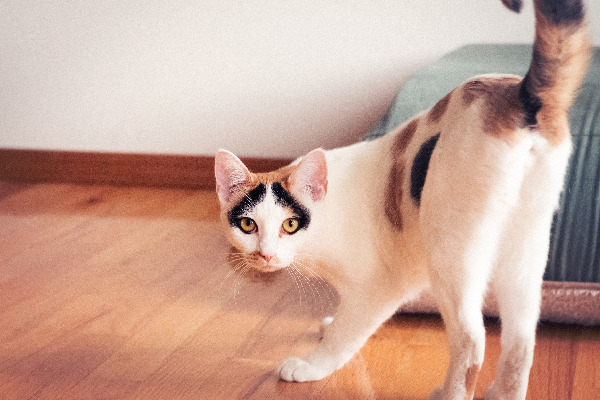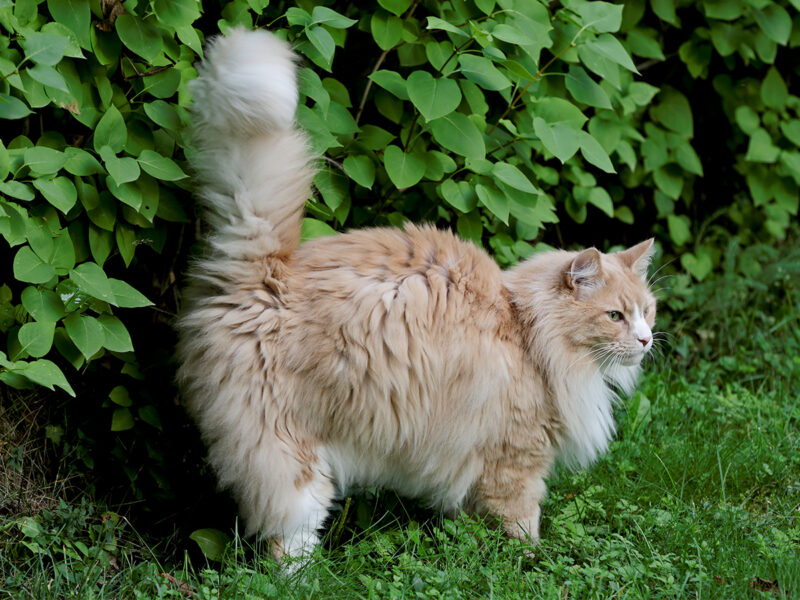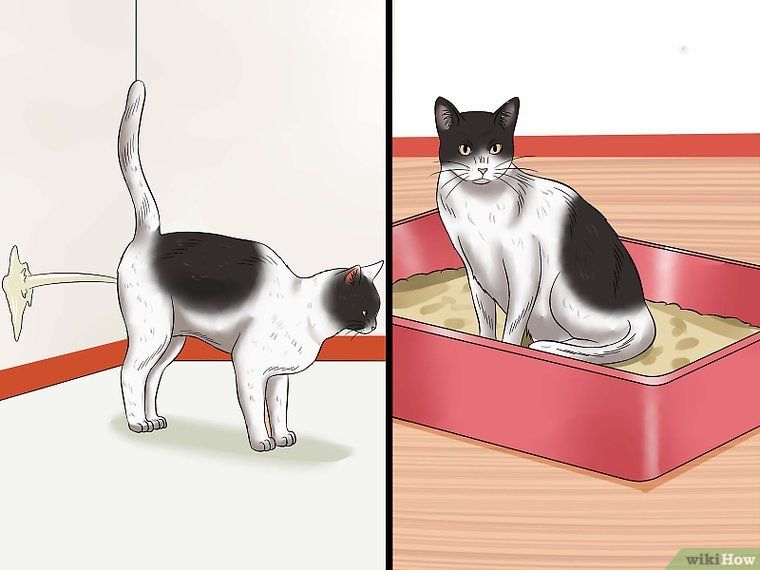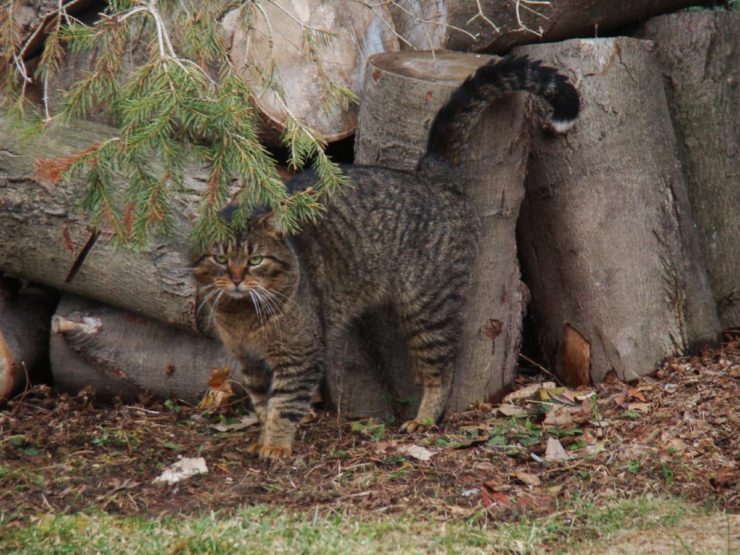What do mean Cat spraying and cat urinating
Cat spraying and cat urinating are two different behavioral marking gestures of a cat whenever it finds difficulty adapting to its surrounding environment.
When a cat sprays, it raises its tail upright and sprays against the back of a chair, a vehicle, or some spot that it likes the most by twitching/quivering its tail. It sprays a small amount of its urine on vertical surfaces like a wall or a door. Mostly, the favorite spray spots for your cat can be your hallways or doorways.
On the other hand, when a cat urinates, it generally crouches and urinates on horizontal surfaces, like a litter box, in large amounts when compared to spraying.
Spraying is a typical marking phenomenon that is most commonly observed in the family of cats. Not only cats, but also ants, millipedes, skunks, and sometimes, we can even observe this spraying in dogs. Spraying refers to a mechanism in which an animal sprays or marks an area with its bodily scent or urine.
Now, let us try to understand how this mechanism works in the family of cats. A cat belongs to the family of Felidae, which also includes lions, tigers, leopards, jaguars, cheetahs, cougars, etc.
When we observe these carnivores in the wild, they are very powerful and possess enormous muscle strength compared to our domesticated cats.

These big cats often engage in territorial warfare with their fellow cats for claiming their territory by signaling their presence.
Spraying can be viewed as a symbol of communication among the feral cats in wildlife. It is a small amount of urine that the wild cats spray on parts of trees, shrubs, and dens to claim their territory so that other wild cats dare not to trespass their region.
Spraying leaves behind a particular scent that is unique to different cats and gives them an identity for showcasing their presence. Cats, being the smallest member of the cat family, have received this instinct from their relatives and so it must be understood that this phenomenon is common in cats.
This must not be misunderstood with urinating because when a cat sprays, it is a behavioral issue, but when a cat urinates, it is both a behavioral and medical issue.
Cats in our houses tend to spray generally when they are around 5-6 months around the maturity age. In some cats, it may take a bit longer. Both male and female cats spray, but this phenomenon is mostly observed in male cats. So, what might be the reasons behind our cat’s strange spraying/marking in and around our houses?
The following are some of the most common reasons:
Your cat sprays when it encounters other animals in its vicinity.
When you bring another pet to your home or when your neighbor gets a pet or when your cat sees stray animals in its surroundings, it anticipates a threat and trespassing. So, your cat sprays to signal the other animals that this is its territory and that they aren’t allowed to invade its empire (at least in your cat’s point of view).
Your cat tends to spray when it is under stress.

Cats, too, have their own anxieties and stress issues. Our little feline creatures sport when they don’t like anything in the house like a bag or even a newborn baby can trigger their stress hormones.
Your cat might be exhibiting typical mating behavior.
Most of the intact cats (which aren’t spayed or castrated) spray when they are ready to mate. If you want to address this issue, then you must understand the behavioral patterns of your cats and try to sort it out accordingly.
Why do they urinate out of the litter box?

There are many reasons why a cat urinates outside of a litter box. Some of them include a cat disliking the scented or clay litter, or it might have an issue with the location of the litter box. Cats are very particular about their feeding and littering areas. For instance, your cat might not like to litter in the middle of your hallway or at the entrance and these might be some of the reasons why your cat isn’t using the litter box. Also, it is important to clean the litter box regularly so that your cat doesn’t choose some other spot for urinating. The other causes for urinating may be underlying medical issues like diabetes, arthritis, kidney dysfunction, bladder stones, etc. This is a serious issue and your cat must be taken to the vet immediately to avoid any further complications.
How to control my cat’s spraying
- Fortunately, there are a few methods to reduce/control the spraying of a cat:
- Get your cat spayed/castrated/neutered with the help of a vet where he/she removes the reproductive organs of your cat which helps to reduce its urge of spraying.
- Do not punish or negatively reinforce your cat because of its natural tendency. Instead, try to take the help of your vet to control its spraying behavior.
- Reduce anxiety and stress levels in your cat by paying necessary attention to it.
- Keep stray animals away from the vicinity of your cat.
- When you bring another pet to your home, you need to establish a good bond between them so that your cat doesn’t feel isolated or threatened by the new pet. Also, if you have more than one cat in your home, then you must take good care of each and every cat without isolating/ignoring any one of them.
- Pull down your blinds/curtains to avoid your cat’s encounter with your neighbors’ pets.
- It is highly recommended to provide more than one litter box to your cat to avoid unnecessary urinating outside the box.
- Try feeding your cat in the spraying spot. Since cats are fond of their food, it is highly unlikely that they spray in their feeling area.
- Try shifting the litter box to the spraying spot.
